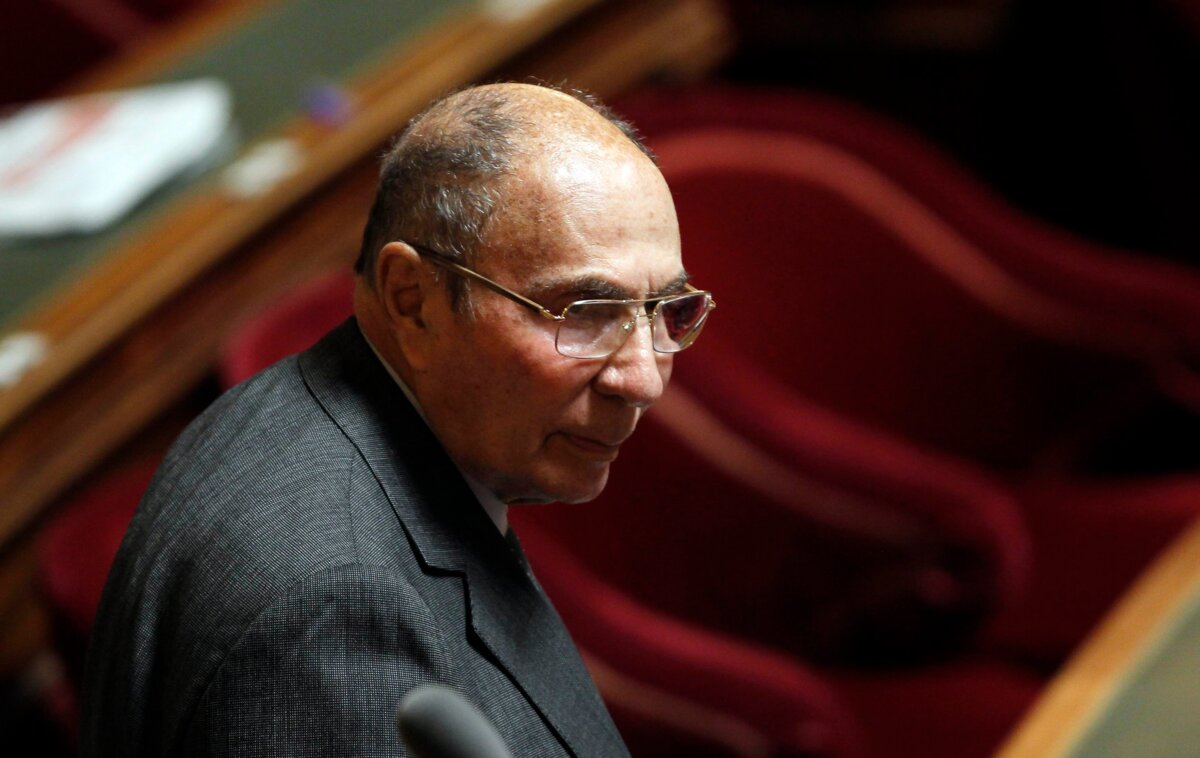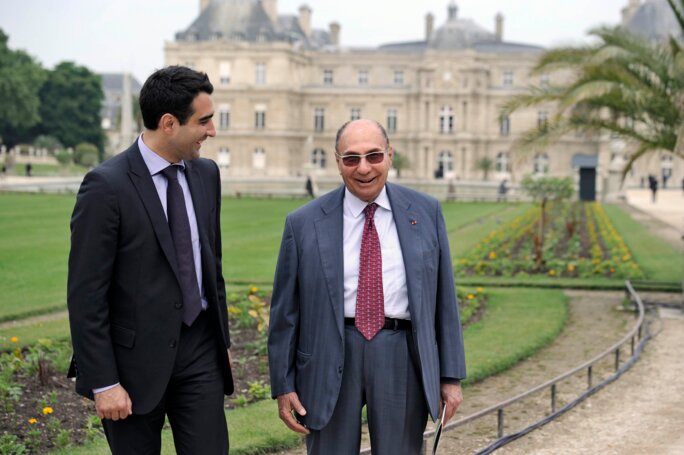In the end all it took was a tiny handful of senators to shackle the judicial authorities in their attempts to unravel one of the biggest corruption scandals of recent years in France: the Dassault affair. On Wednesday members of the Senate office committee snubbed investigating magistrates Serge Tournaire and Guillaume Daïeff by refusing to lift parliamentary immunity from Senator Serge Dassault, the right-wing UMP politician and billionaire industrialist who is at the centre of allegations of electoral corruption in the town where he served as mayor for many years. The investigation centres on claims that Dassault used millions of euros to buy votes to ensure he was voted in as mayor of Corbeil-Essonnes near Paris, a post he held from 1995 to 2010. There are also allegations that an associate of Dassault attempted to murder a man who demanded more money from the billionaire in relation to the alleged election-rigging. Wednesday's vote means that the two examining magistrates are deprived of important judicial tools in their search for evidence, for example the ability to detain Serge Dassault for questioning or hold him in temporary custody.
Yet the senators, who voted 13 to 12 with one abstention in the secret ballot not to lift immunity, even though the Left has a majority on the committee, could not claim they were unaware of the details of the allegations and evidence involving their fellow senator Serge Dassault. The two judges had taken great care to prepare a detailed document in support of their request, in which they were backed by the public prosecution service in Paris.

Enlargement : Illustration 1

According to several well-placed sources who have spoken to Mediapart, the judges' request document included details of a Lebanese bank account called “Iskandia”, also the name of one of the companies of which Serge Dassault is a shareholder, from which three million euros were apparently withdrawn to buy the local elections in Corbeil. According to other sources these transactions attracted the suspicions of agents in the ministry of finance's anti-money laundering unit Tracfin, who have been monitoring the situation since 2010.
Moreover, the judges' document stated that a man said to be a key figure in the “Dassault system”, Mamadou Kebbeh, who brought the money from the Lebanon to Corbeil, has admitted to the investigation that he used a part of this money to convince local electors to vote “well”. In an interview on December 8th, 2013 with the newspaper Le Journal du Dimanche Serge Dassault admitted paying 1.2 million euros that came from the Lebanon to Mamadou Kebbeh to “keep the peace”. The young man was later accused of “harassment” by the billionaire.
The other main beneficiary of these funds from the Lebanon was a man called Younès Bounouara, a protégé of Serge Dassault who is today under formal investigation for attempted murder. In February 2013 Younès Bounouara is said to have shot and nearly killed Corbeil resident Fatah Hou, who two months earlier had been one of two men who secretly videotaped a meeting with Serge Dassault. In the extracts of this recording revealed by Mediapart last September, the billionaire admits having made payments from the Lebanon to Younès Bounouara. Dassault told the two men secretly recording him that he could no longer get money out because he was being “watched by the police”.
Some of the money given to Corbeil residents, notably payments made in 2010, was apparently dressed up as loans whose authenticity is now being challenged, according to senators who saw the judges' demand for removing immunity and who themselves voted to end it. The same sources say that these payments were only declared as loans three years later, in June 2013, at a time when judicial investigations into the affair were gathering pace.
Yet despite being informed of these details of the investigation the Senate's office committee - made up of senior senators from all political groups - voted against lifting Dassault's immunity. Those close to the socialist Senate president Jean-Pierre Bel were said to be “distraught” at the outcome, which many feel will discredit Parliament’s upper chamber. “We've suffered a body blow,” added one member of Bel's office.
The hunt for the 'traitor' on the Left
The 26 senators who are members of the Senate office committee voted in a secret ballet, even though there is no rule that forces them to do so. “It's just custom,” admits the Senate. The one reform brought in for this vote was that for the first time the voting figures were officially communicated afterwards.
The judges' report was handed out at the start of the committee's deliberations, during which centrist senator Jean-Léonce Dupont gave an oral presentation of the document's contents. The senators, though, were forbidden from copying the document, which is covered by confidentiality rules that surround all judicial investigations, and which is now under lock and key in the Senate. However, senators were given permission to have an advance look at the report just before Christmas, a provision some of them took advantage of.
In the secret vote itself just 12 of the 26 senators voted “yes” to the request for Dassault's immunity to be lifted, even though between them the Left – socialists, communists and greens – have 13 members on the committee. In addition there was also a senator from the RSDE senate group, which is largely made up of the Parti radical de gauche, a centre-left party closely allied with the Socialist Party.

Enlargement : Illustration 2

“Some senators from the Left have failed in respect of this vote...I am outraged,” announced senator and head of the French communist party (PCF) Pierre Laurent immediately after the vote, at the same time promising that his three fellow communists on the committee had voted “yes”. The question quickly arose, then, as to just who on the Left had voted against lifting immunity or had abstained, with some politicians even talking about a “traitor” in their ranks.
The only green senator on the committee, Jean Desessard, quickly came under suspicion because the leader of the greens in the Senate, Jean-Vincent Placé, is friendly with Serge Dassault; both men have strong ties with the Essonne departément where Corbeil-Essonnes is situated. “I voted for lifting [the immunity],” Desessard was quick to point out afterwards, however. “In any case I left my voting slip in full view on the table, visible to the two people next to me, the socialist Marie-Noëlle Lienemann and the communist Gérard Le Cam!”
For their part the greens suspect that at least one socialist senator voted against removing immunity. This suspicion was not dispelled by the fact that one socialist senator, Bariza Khiari, refused to tell the media how she had voted. “Too bad,” said the senator when asked about the impact of her reluctance to divulge her vote. “I attach importance to the principle of the secret nature of deliberations and I regret that it is not more respected.”
As an indication of the slightly fevered and accusatory mood following the “no” vote, some socialists discreetly pointed the finger at the communists. “Pierre Laurent was very quick to draw up his press release and accuse others...it wouldn't be the first time that the communists voted against their own camp,” said one. In fact, short of someone on the Left coming out and “admitting” they voted against lifting immunity, all such speculation remains pointless. “Everyone says what they want to the outside world, no one could ever say with certainty who voted which way,” says one Senate veteran.
Political leaders on the Left had hoped to avoid such a situation. Before Christmas the head of the socialist group in the Senate, François Rebsamen, had taken care to ask all PS members of the Senate office committee to be present for the crucial vote, unlike during the previous no vote on the same issue last July. Rebsamen had hoped to avoid any “political connotation” that might be read into someone's absence.
It is true that the socialist vice-president of the Senate, Didier Guillaume, agreed to a discussion with Serge Dassault about the issue of immunity, but this meeting took place in the Senate's refreshment area in full view and knowledge of everyone, to avoid any suggestion of a negotiation taking place. Dassault had also sent letters on December 20th to all members of the Senate office, pleading his cause.
“It is deplorable that two voters from the Left out of 14 defected,” said the Socialist Party's spokesman David Assouline, before attacking the right-wing UMP, of which Dassault is a member, for the way they apparently voted. “It is particularly revolting, in respect of republican values, that the Right preferred to protect one of its own in the name of partisan politics, by block-voting against the lifting of immunity.”
In fact so far no senator from the UMP – there were ten who took part – has indicated how they voted. There were, meanwhile, rumours that one of the two centrist senators from the UDI-UC Senate group voted in favour of lifting immunity – which, if true, means that another senator from the Left must have voted against it. “One of our two senators says they voted for lifting immunity,” confirmed a UDI-UC source. “But he might be lying.”
--------------------------------------------------
English version by Michael Streeter


